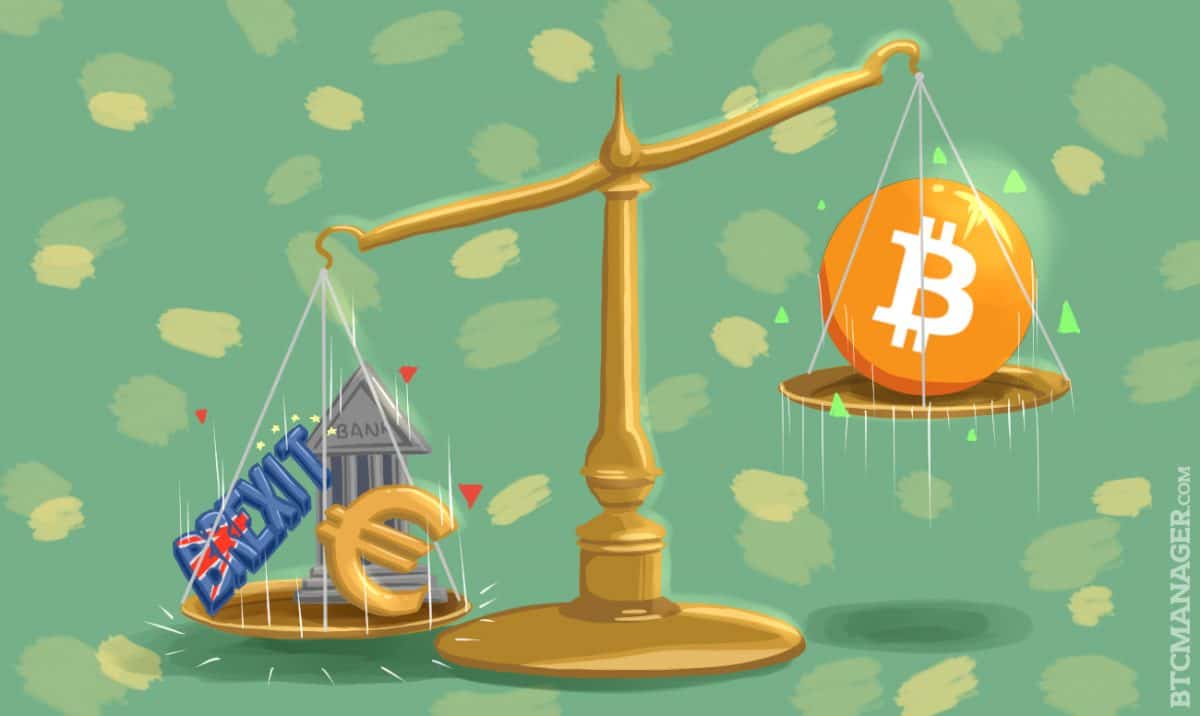Central Banks’ Interventions Could Provide Positive Fundamental for BTC-USD

The fallout of Brexit has heightened the likelihood of more interventions in currency markets by central banks around the world, representing a positive fundamental theme for Bitcoin going forward. Countries have already been playing a ‘beggar thy neighbor’ strategy by competing to devalue their currencies and gain a larger share of the global export market at the expense of others. In doing so, and since most central banks are doing so simultaneously, we should see Bitcoin appreciate against major fiat currencies over the long-term.
China expressed concerns over Brexit with an assessment of the effects on the state of the global economy. Lou Jewei, China’s finance minister, stated that Brexit “will cast a shadow over the global economy, where the repercussions will emerge over the next five to ten years.” The Chinese Premier, Li Keqiang, also noted the increased economic uncertainties due to the and called for measures to ensure stability for the international economy. BTC-USD posted highs just below $650 in response to this news earlier this morning but has since retreated to $634.61 at the time of writing.
The shocking vote to leave and the instability brought with it will test China’s new exchange rate regime, which is now based on a basket of currencies. All major currencies have suffered losses with the exceptions of the Dollar and the Yen, and the People’s Bank of China will be under pressure to devalue the Yuan to maintain international competitiveness. However, if it devalues too far relative to the US Dollar, this will induce higher capital outflows. Policymakers are also adamant on avoiding another stock market crash like the one that hit China last summer. Previously, Yuan devaluation precipitated large money flows into Bitcoin, illustrated by large volumes traded across Chinese exchanges earlier this year. This was the main driver pushing the BTC-USD above the $400s. Efforts this time round to fix the Yuan rate lower may see a similar spike in buying interest from China.
Japan’s stock market rebounded today as government officials stated that they are watching currency markets closely and may intervene to stabilize the Yen. The Japanese Yen strengthened as investors flocked to safe-haven assets amidst economic uncertainty thrown up by the Brexit vote. Intervention to weaken the Yen and help the country’s exporters would be a bullish fundamental for Bitcoin going forward; since the supply of Bitcoin is fixed and the supply of Yen is ever increasing, this divergence should push the price of Bitcoin higher over the long-run. The Bank of Japan may hold an emergency meeting to expand stimulus measures if the Tankan business survey on July 1st confirms a worsening of the domestic economy.
Further political uncertainty in Europe may force the European Central Bank to act as well. Spain has failed to form a majority government and negotiations to form a coalition are underway. Following the Brexit vote, the theme is not integration but dis-integration among the European economies. This could spark a longer-term sell-off in the Euro. The European Central Bank is expected to cut interest rates further into negative territory in September in an attempt to calm markets. Zero percent interest rates are expected to be the policy stance for the long-term, which should push the fundamental value of the Euro down. The break-up of the single currency is now looking as likely as ever and Bitcoin could fill the void in such a situation.
With so many economies around the world now looking at continuing the policies of zero percent interest rates and expanding their money supply even further, Bitcoin looks set to continue to appreciate against fiat currencies over the coming months, especially the Euro, the Yuan and the Yen. Announcements from central banks and details on their prescribed policy choice are anticipated to move markets substantially going forward as policymakers try to figure out how to proceed in the best way possible. However, Bitcoin will continue to flex its muscles as a store of value and highlight the deficiencies of a central authority governing the creation of money.












